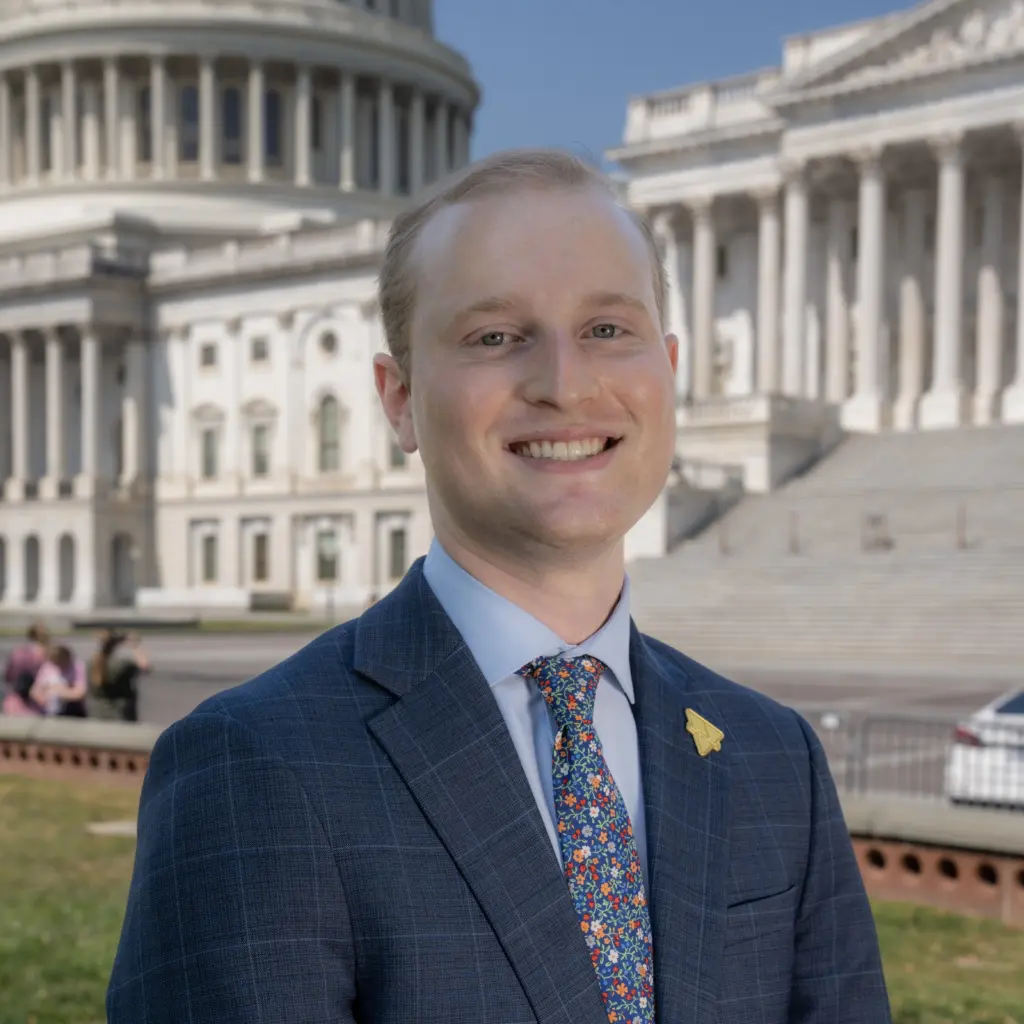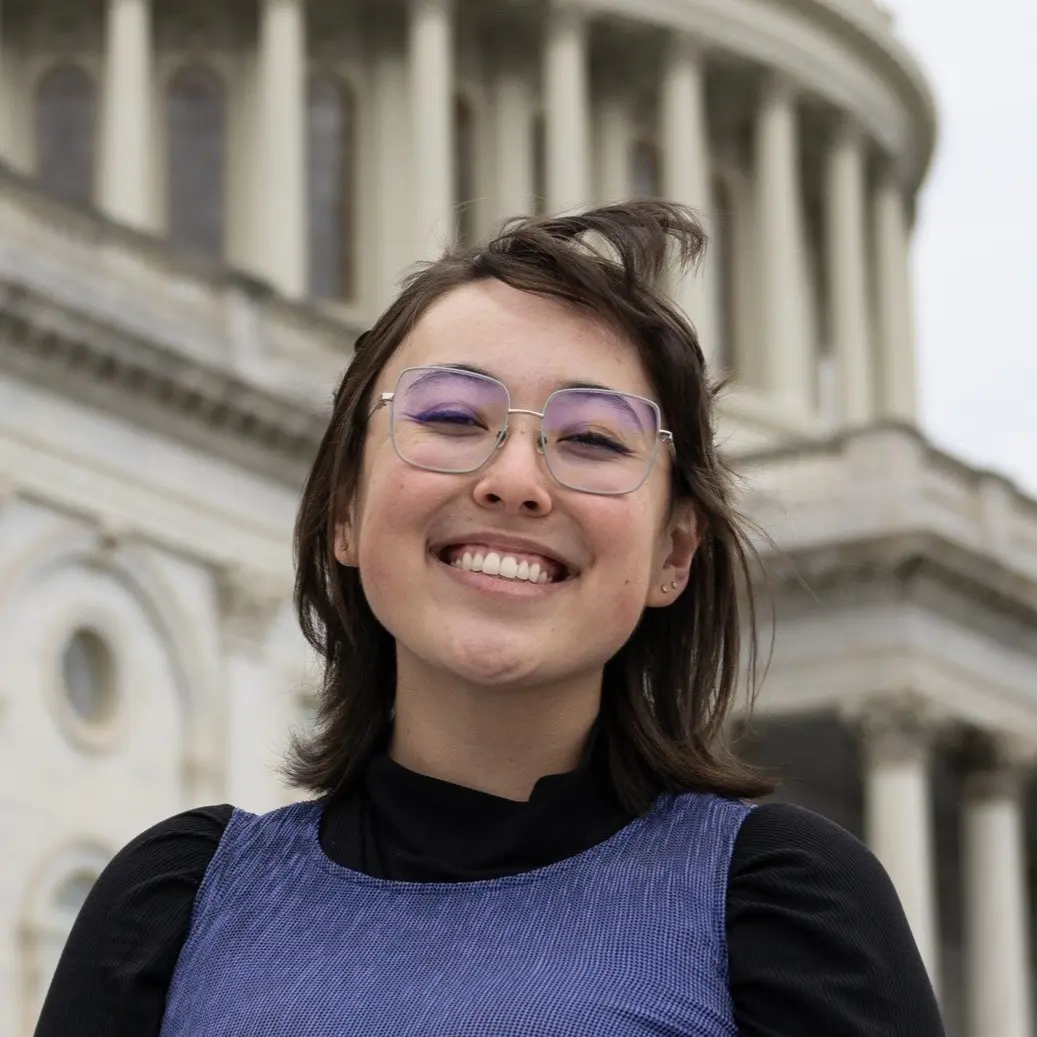
OUT ON THE HILL is the official blog of the Victory Congressional Interns. Views expressed do not necessarily reflect those of LGBTQ+ Victory Institute. Learn more about the internship at victoryinstitute.org/vci.
———————————–
“I love Texas because Texas is future-oriented, because Texans think anything is possible. Texans think big.” – Senator Phil Gramm
My roots are firmly planted in the Lone Star State, where the culture is as distinct as the landscape. From the drink of choice, sweet tea, to the deep passion for football that borders on religious devotion, everything in Texas is known for being bigger and better—including its politics. Just two days before boarding my flight headed to the Nation’s capital, I finished my time as a legislative assistant in the Texas House of Representatives. It was in those hallowed halls where my love of politics was cemented, and I was certain my experience in the halls of the Congress would be similar.
However, Washington, D.C. is not like Austin.
Within the House office buildings of Rayburn, Longworth, and Cannon, 435 unique Congress members from different political parties seek to represent their constituents and advance their policy agendas. While diversity of opinion is a crucial aspect of democracy, the political landscape of Washington suffers from a distinct form of partisan politics, where personal ambition often overshadows the greater responsibility of serving the public.
I hate to say it, but: Washington, D.C. is all hat and no cattle.
Unlike the robust debates, spirited discussions, and vibrant policymaking that characterizes Texas politics, the halls of Congress are entrenched in partisan divisions on trivial issues like banning gas stoves and drafting retaliatory articles of impeachment. The battles over ideology are more pronounced, making it increasingly challenging to find common ground and achieve consensus on key issues.
Texas politics offers a different model—a model built on cooperation so that bigger and better policies can enrich the lives of constituents. This model demonstrates that even in the midst of ideological differences, productive dialogue and bipartisan cooperation are possible. Texas lawmakers understand that to serve their constituents effectively, they must bridge divides, find common ground, and put the needs of the people above partisan loyalty.
While Texas boasts the better legislative model, I cannot—and will not—overlook the disastrous laws passed in recent years that seek to roll back LGBTQ+ rights, curtail the ability of individuals to make decisions about their bodies, and undermine the democratic election process. It is deeply disheartening to witness the state government’s attempts to push an ultra-conservative agenda that promotes bigotry, discrimination, and in the worst cases, violence. As we address the challenges posed by regressive laws, we must also work to foster open dialogue and understanding to bridge divides and find solutions to our most pressing issues.
On Sine Die – the last day of a Texas legislative session – several democratic representatives flocked to the back microphone to offer their praise of Republican Texas Speaker of the House, Dade Phelan. Despite significant, devastating defeats for Democrats throughout the session, we still managed to pass several bills that help our constituents and worked across the aisle to deliver solutions for Texans. Comparatively, I think it would be challenging to find just one Democrat in Congress to go on record praising U.S. Speaker of the House, Kevin McCarthy. And while I denounce some of the legislation being pushed by his party, I yearn for the day when both parties can come together like we do in Texas, because Americans deserve representatives who are more committed to progress than posturing.
While the challenges of partisan divisions and gridlock in Washington, D.C. may seem daunting, I’m encouraged by the instances where members from both sides of the aisle come together for the greater good, even if they may be fewer and farther between. I believe that by staying true to the principles of public service and the spirit of bipartisanship, we can break through the barriers that hinder progress and restore faith in the democratic process.
Texas is not just a place on a map – it is an idea in my heart that taught me the power of thinking big and believing anything is possible. Although I am leaving the Hill for now, I understand that the lessons I’ve learned in the Lone Star State will continue to shape my perspective and approach to public service. Whether in the halls of Congress or elsewhere, I am committed to embodying the principles that Texas instilled in me – the unwavering belief that we can overcome challenges, find common ground, and create a better future for all.


